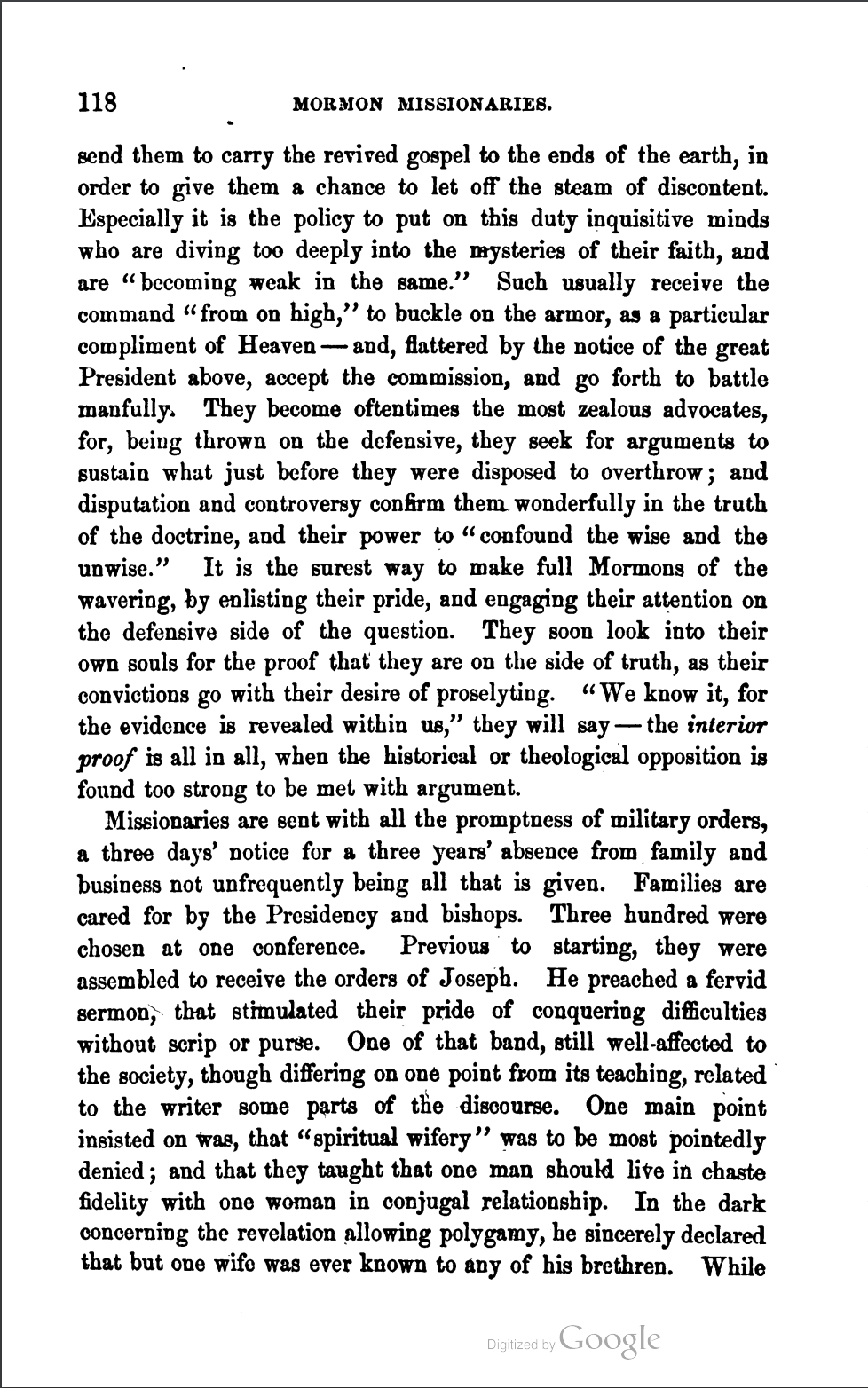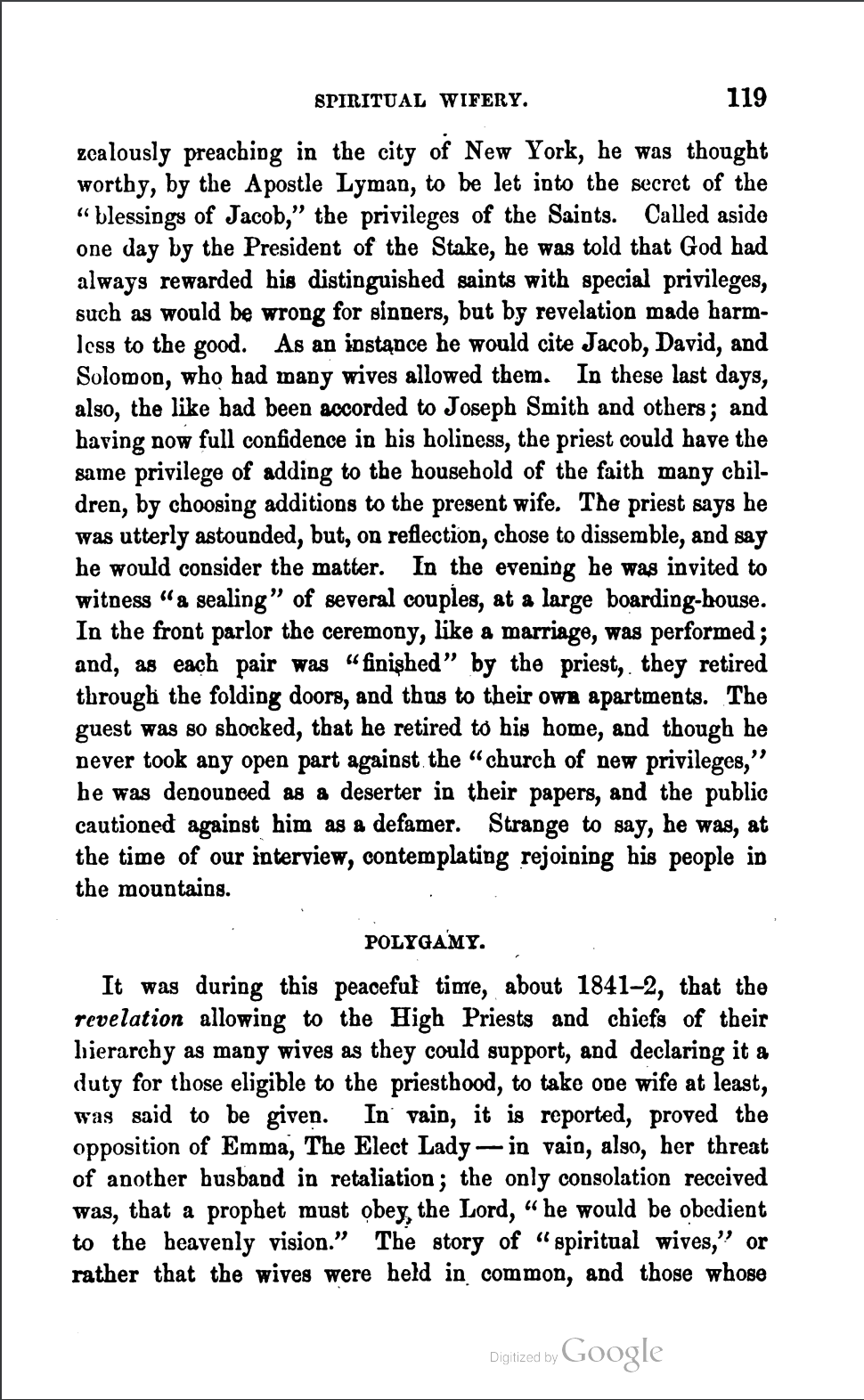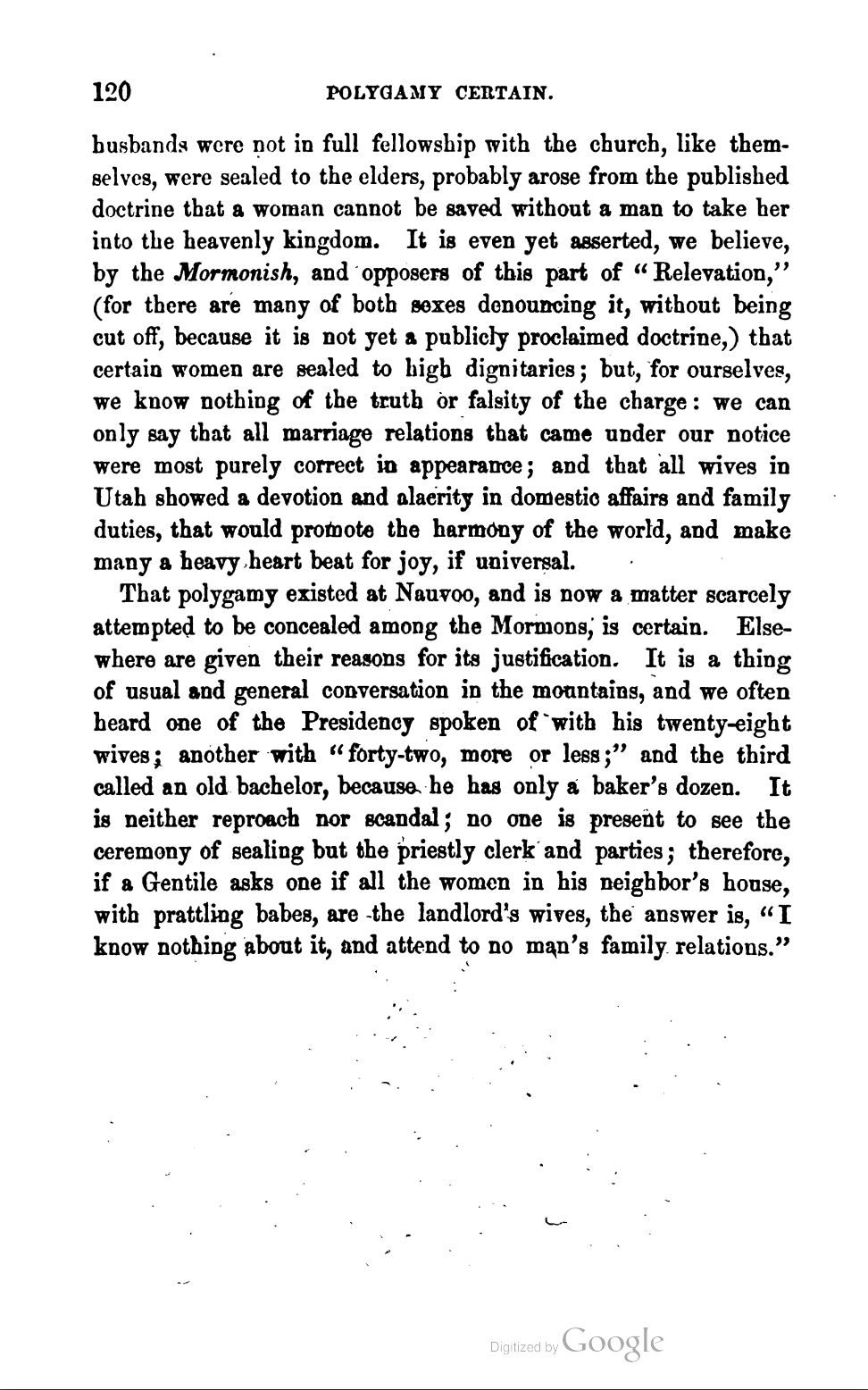J. W. Gunnison writes about and criticizes Mormon polygamy.
- Type
- Book
- Source
- J. W. Gunnison CriticNon-LDS
- Hearsay
- Direct
- Reference
J. W. Gunnison, The Mormons, or Latter-Day Saints, in the Valley of the Great Salt Lake (London: Sampson Low, 1851), 118–120
- Scribe/Publisher
- Sampson Low
- Audience
- Reading Public
- Transcription
Missionaries are sent with all the promptness of military orders, three days' notice for a three years' absence from family and business not unfrequently being all that is given. Families are cared for by the Presidency and bishops. Three hundred were chosen at one conference. Previous to starting, they were assembled to receive the orders of Joseph. He preached a fervid sermon, that stimulated their pride of conquering difficulties without scrip or purse. One of that band, still well-affected to the society, though differing on one point from its teaching, related to the writer some parts of the discourse. One main point insisted on was, that "spiritual wifery" was to be most pointedly denied; and that they taught that one man should live in chaste fidelity with one woman in conjugal relationship. In the dark concerning the revelation allowing polygamy, he sincerely declared that but one wife was ever known to any of his brethren. While zealously preaching in the city of New York, he was thought worthy, by the Apostle Lyman, to be let into the secret of the "blessings of Jacob," the privileges of the Saints. Called aside one day by the President of the Stake, he was told that God had always rewarded his distinguished saints with special privileges, such as would be wrong for sinners, but by revelation made harmless to the good. As an instance he would cite Jacob, David, and Solomon, who had many wives allowed them. In these last days, also, the like had been accorded to Joseph Smith and others; and having now full confidence in his holiness, the priest could have the same privilege of adding to the household of the faith many children, by choosing additions to the present wife. The priest says he was utterly astounded, but, on reflection, chose to dissemble, and say he would consider the matter. In the evening he was invited to witness "a sealing " of several couples, at a large boarding house. In the front parlor the ceremony, like a marriage, was performed; and, as each pair was "finished" by the priest, they retired through the folding doors, and thus to their own apartments. The guest was so shocked , that he retired to his home, and though he never took any open part against the "church of new privileges," he was denounced as a deserter in their papers, and the public cautioned against him as a defamer. Strange to say, he was, at the time of our interview, contemplating rejoining his people in the mountains.
Polygamy.
It was during this peaceful time, about 1841-2, that the revelation allowing to the High Priests and chiefs of their hierarchy as many wives as they could support, and declaring it a duty for those eligible to the priesthood, to take one wife at least, was said to be given. In vain, it is reported, proved the opposition of Emma, The Elect Lady—in vain, also, her threat of another husband in retaliation; the only consolation received was, that a prophet must obey the Lord, "he would be obedient to the heavenly vision." The story of "spiritual wives," or rather that the wives were held in common, and those whose husbands were not in full fellowship with the church, like themselves, were sealed to the elders, probably arose from the published doctrine that a woman cannot be saved without a man to take her into the heavenly kingdom. It is even yet asserted, we believe, by the Mormonish, and opposers of this part of "Relevation," (for there are many of both sexes denouncing it, without being cut off, because it is not yet a publicly proclaimed doctrine,) that certain women are sealed to high dignitaries; but, for ourselves, we know nothing of the truth or falsity of the charge: we can only say that all marriage relations that came under our notice were most purely correct in appearance; and that all wives in Utah showed a devotion and alaerity in domestic affairs and family duties, that would promote the harmony of the world, and make many a heavy heart beat for joy, if universal.
That polygamy existed at Nauvoo, and is now a matter scarcely attempted to be concealed among the Mormons, is certain . Else where are given their reasons for its justification . It is a thing of usual and general conversation in the mountains, and we often heard one of the Presidency spoken of with his twenty-eight wives; another with "forty-two, more or less;" and the third called an old bachelor, because he has only a baker's dozen. It is neither reproach nor scandal; no one is present to see the ceremony of sealing but the priestly clerk and parties; therefore, if a Gentile asks one if all the women in his neighbor's house, with prattling babes, are the landlord's wives, the answer is, "I know nothing about it, and attend to no man's family relations."
- Citations in Mormonr Qnas
The B. H. Roberts Foundation is not owned by, operated by, or affiliated with the Church of Jesus Christ of Latter-day Saints.



